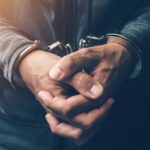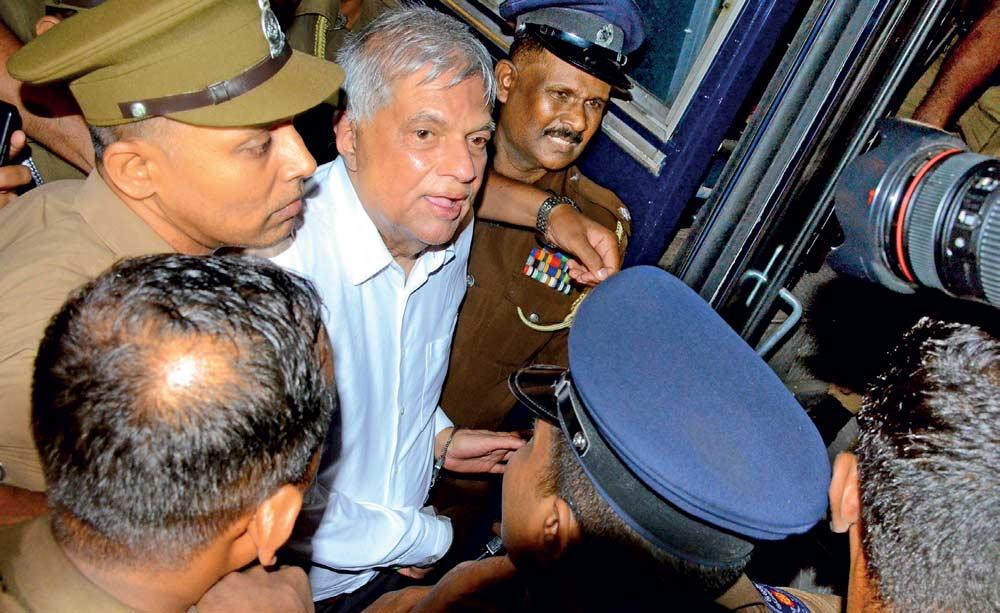
Ranil’s Arrest Sparks National Debate: From Saving a Bankrupt Nation to Facing the Dock
- CNL Reporter
- August 25, 2025
- Weekly Political Review
- Ranil’s Arrested
- 0 Comments
Political Review of the Week
The arrest of former President Ranil Wickremesinghe and his remanding by the Colombo Magistrate’s Court until August 26 has not only gripped the country but also stirred one of the most consequential debates in Sri Lanka’s recent history. The case, centering on alleged misuse of state funds during an overseas visit, has brought into sharp focus questions about presidential privilege, the boundaries of constitutional immunity, and the very legacy of a leader who has spent five decades in public service.
The Criminal Investigation Department (CID) told court that the case relates to an overseas engagement by Wickremesinghe during his presidency, for which aithorities allege that state funds were expended outside official purposes. His legal team has strongly rejected this interpretation, insisting that the visit in question was conducted in his capacity as the sitting head of state and could not be categorised as private.
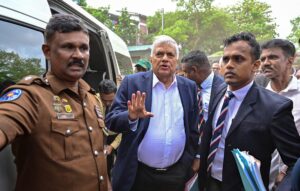
At the heart of the case lies Wickremesinghe’s participation in a British university convocation ceremony, where he had been invited in his official capacity as President of Sri Lanka. His defence has argued that a head of state cannot “gatecrash” such an event and that attendance at international academic or diplomatic forums is part of the representational function of the presidency. Sri Lanka’s Constitution, notably, does not contain explicit clauses on how presidential overseas visits should be defined—whether academic, diplomatic, or ceremonial—and this ambiguity has now become a central point of contention.
A Leader Who Pulled a Nation Back from the Brink
That Ranil Wickremesinghe should be facing these charges just two years after steering Sri Lanka away from complete state collapse adds a deep layer of irony to the unfolding drama. By mid-2022, Sri Lanka had been declared bankrupt. Its foreign reserves had evaporated, the government defaulted on debt for the first time in history, and long queues stretched across the country as fuel, cooking gas, medicines, and essential imports dried up. Public anger culminated in mass protests that forced the resignation of President Gotabaya Rajapaksa.
Into this chaos stepped Wickremesinghe, then a lone member of his party in Parliament, sworn in as Prime Minister and later President in July 2022. With no mandate, no majority, and little time, he took charge of a government in freefall. Critics doubted whether he could survive weeks, let alone months. Yet, through painstaking negotiation, he secured emergency fuel shipments, restored the flow of cooking gas, and re-opened supply lines for food and medicines. Within a matter of months, daily life in Sri Lanka stabilised to a degree many had not thought possible.
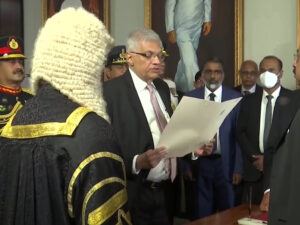
More significantly, Wickremesinghe’s administration opened talks with the International Monetary Fund (IMF), navigating one of the most complex debt restructurings in Sri Lanka’s history. His government implemented politically costly tax increases, revenue reforms, and expenditure controls to meet IMF conditions. Though these measures remain unpopular, economists widely agree they prevented a total financial collapse and laid the groundwork for gradual recovery.
Supporters point out that without Wickremesinghe’s willingness to take the political risk of leading a bankrupt nation, Sri Lanka could have remained in the grips of chaos, with no fuel at stations, no electricity in homes, and no medicine in hospitals. His arrest, therefore, is seen by many not only as a legal issue but as an indictment of the very leader who prevented Sri Lanka’s collapse.
The Legal and Constitutional Grey Zone
The CID’s case hinges on whether the funds allocated for Wickremesinghe’s foreign travel were used strictly for official purposes. But what counts as “official” for a sitting president? This is where the matter becomes complicated.
The Constitution of Sri Lanka provides immunity to a president during their term in office (Article 35), but that shield is removed once they leave office. Yet nowhere in the Constitution is there a detailed framework governing the scope of presidential overseas visits. There are no specific guidelines on whether attending an academic convocation, an honorary ceremony, or even an international cultural event falls outside official duty.
Constitutional experts point out that modern diplomacy is not confined to state-to-state meetings alone. In an era of global engagement, presidents frequently participate in academic forums, university convocations, think tank dialogues, and cultural events. By representing their nation in these settings, they enhance Sri Lanka’s international profile. To suggest such engagements are “non-official” risks oversimplifying the nature of twenty-first century statecraft.
Thus, Wickremesinghe’s lawyers argue, his visit to a British university could not have been “personal” in nature—it was part of his function as head of state, projecting Sri Lanka’s presence on the global stage. This ambiguity now places the courts in the position of having to interpret a constitutional grey area that has never before been tested.
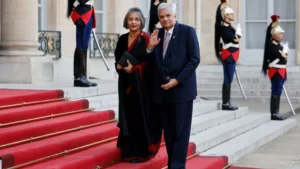
Politics and the Courtroom
Unsurprisingly, the case has spilled beyond the courtroom into the political arena. Opposition parties have seized on Wickremesinghe’s arrest to portray him as a failed reformist whose legacy is tarnished by alleged misuse of funds. His supporters, on the other hand, argue that the charges are selective and politically motivated, designed to undermine his credibility and weaken his influence in the current political climate.
Adding to the tension, several civil society groups and political allies are now planning public demonstrations in support of Wickremesinghe. These protests, if they materialise, could complicate the legal process by exerting public pressure on the judiciary. While peaceful protest is a constitutional right, the staging of mass rallies in favour of a defendant risks being interpreted as an attempt to influence the course of justice. This is a delicate balance: expressions of public solidarity may strengthen Wickremesinghe’s political hand, but they could also backfire if seen as an obstruction of legal proceedings.
A Global Lens
The case is also being watched closely by Sri Lanka’s international partners. Wickremesinghe was instrumental in stabilising ties with the IMF, China, India, and bilateral creditors. His arrest introduces uncertainty at a time when creditor negotiations and economic reforms require continuity and credibility. Foreign diplomats privately acknowledge their concern: if a leader who carried the burden of rescuing Sri Lanka from bankruptcy is now embroiled in a politically charged trial, what does that mean for future political stability?
Legacy on Trial
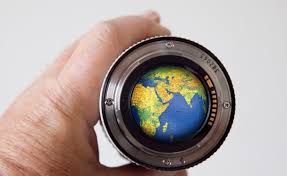
Ultimately, this case is about more than one foreign visit or one set of travel expenses. It is about the legacy of a man who has shaped Sri Lankan politics for nearly half a century. Wickremesinghe first entered Parliament in the 1970s, rose through ministerial ranks, led the United National Party through cycles of defeat and revival, and became prime minister six times before ascending to the presidency. His technocratic style, international outlook, and ability to negotiate under pressure earned him both admirers and detractors.
Now, his legacy hangs in the balance. For his supporters, he will always be remembered as the leader who stepped into the void during the nation’s darkest hour and pulled Sri Lanka back from the abyss. For his critics, the court case is proof that he was no different from others in misusing public funds. The court’s eventual ruling will therefore not only determine his personal fate but also shape how history records his contribution.
The Road Ahead
As Wickremesinghe remains in remand custody, all eyes turn to the next hearing scheduled for August 26. The magistrate’s court directive ensures that due process will take its course, but the political reverberations are unlikely to settle soon. With protests planned, opposition rhetoric escalating, and constitutional ambiguities yet to be resolved, the case promises to dominate national conversation in the weeks ahead.
For now, Sri Lanka finds itself in an uneasy paradox: a former president who rescued the nation from bankruptcy stands accused of financial misconduct. Whether this moment will strengthen the country’s democratic accountability or deepen its divisions will depend on how carefully the judiciary navigates its responsibilities—and how responsibly political actors behave outside the courtroom.

